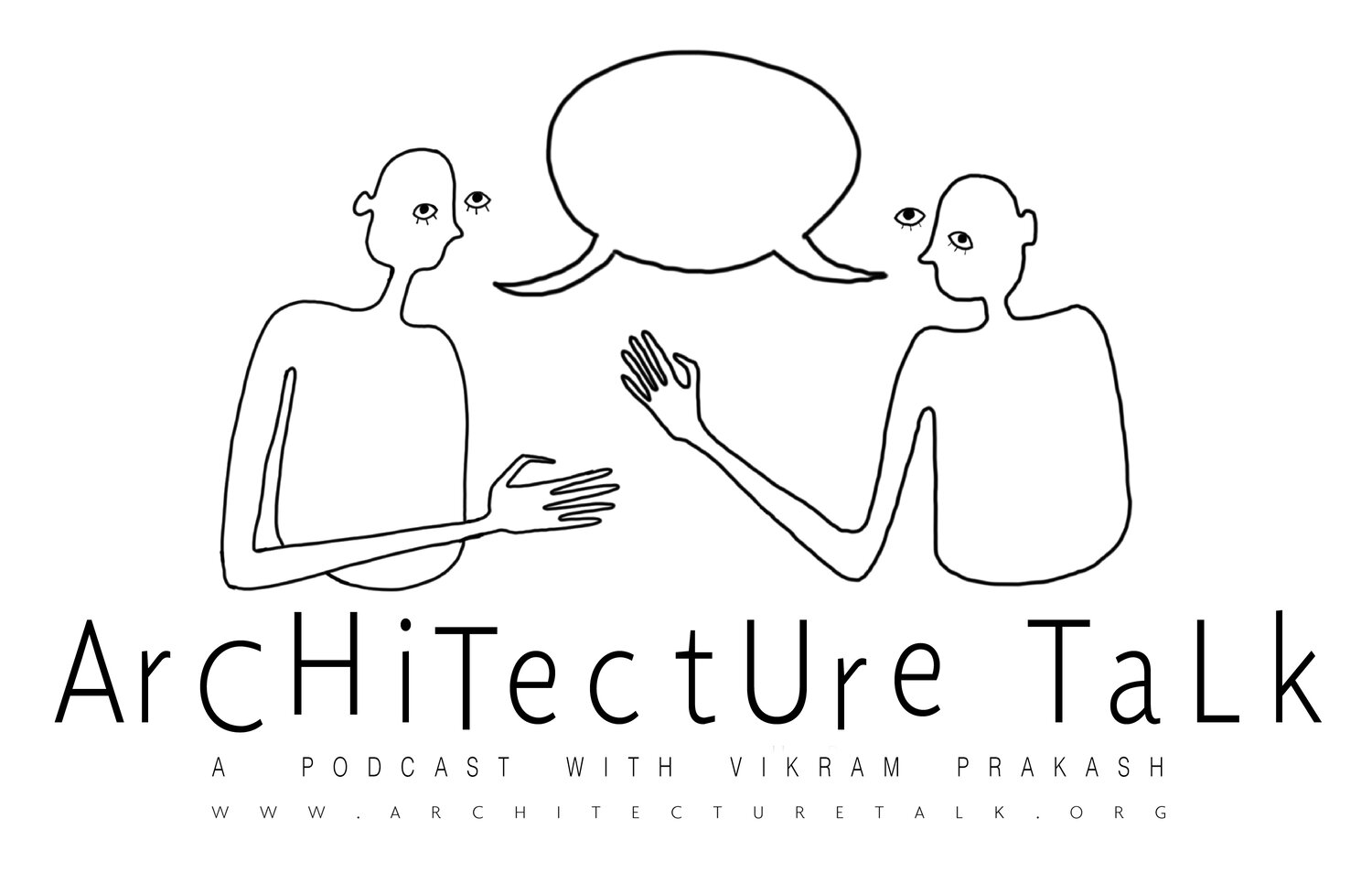113. Architecture as a Site of Thinking with Mark Dorrian
Original Drawing by Tori Haynes
[On Zoom backgrounds]
“You have all your books behind you, Vikram, and politicians arrange their backgrounds to convey a certain message...it’s interesting how these become staged contexts...there’s not much to look at so the background becomes the foreground....”
Mark Dorrian
“That kind of introduces the theater more actively into the production of conversation...we are always sitting on a stage, in that sense....reality TV assumes a new kind of dimension in this world.”
Vikram Prakash
How might we think about architectural education differently in a post-pandemic world? What are the intersections between Covid and Climate Change? How does seeing architecture as a site of thinking impact education today? This week, we sit down with Mark Dorrian to take a deep dive into the material, political, cultural and educational realities surrounding the ongoing pandemic.
Timestamp Outline
00:45 Entree into the conversation starts with an intention of hearing Mark’s response to the Pandemic and Vaccine, the changing architecture and architectural thinking, future impacts…How has it all impacted Mark materially?
2:08 “It’s been quite challenging…[for us] and for the students as well who I think feel rather isolated because they don’t get access to the normal facilities...it’s quite strange because there’s this interplay between this proximity that we have through these kinds of interfaces, which in one sense appears to bring us really close...there’s a peculiar relationship between that mediated proximity and the conditioned life.” MD
5:44 “...So this is really an architectural discussion...you are talking about physical proximity, interacting with things, the distances between us and students, and the time lag could really be said to be an architectural question. Is this informing your thinking about the nature of space, or architecture as such?” VP
7:24 Discipline in the Foucauldian sense: In the broadest sense discipline is only one way that power can be exercised. It is “a mechanism of power which regulates the behaviour of individuals in the social body.” Discipline, as a mechanism of social control, regulates and organizes aspects of culture, such as architecture, time, activities, behaviour, etc... and enforces this organization through surveillance. See also discussion of Jeremy Bentham’s Panopticon for more on surveillance.
10:30 Discussion of how university (online) has expanded the array of contexts in which students may present their work.
11:15 On Zoom backgrounds and optics: “You have all your books behind you, Vikram, and politicians arrange their backgrounds to convey a certain message...it’s interesting how these become staged contexts...there’s not much to look at so the background becomes the foreground....” MD
12:14 “That kind of introduces the theatre more actively into the production of conversation...we are always sitting on a stage, in that sense....reality tv assumes a new kind of dimension in this world.” VP
14:40 “There’s a lot of political rhetoric about us all being in this together and obviously in many ways we are, but we’re not equally exposed to the effects and dangers…” MD
17:00 discussion of what the future may hold for “returning to normal” and biosecurity, new configurations of the future of working...and a great city exodus
20:47 “What does this means in relationship to the climate crisis?” MD
21:00 Peter Sloterdijk and the connection between immunological theory of culture and the Covid situation
21:30 “I think one of the anxieties or concerns is this sense of loss of social attachment and solidarity that comes from contact and from shared experience in a place…Its always seemed to me that architectural teaching is an apprenticeship in citizenship, as well...people come together around shared issues, they work counterpoints, they civilize one another...” MD
23:43 Bubbles - Peter Sloterdijk’s rejection of individualism and the beginnings of his treatise on posthuman interconnectedness...also the “Covid Bubble”
24:55 What kind of mediumship do we need to employ in a Covid world? asks Mark
27:34 Debate between Sloterdijk and Stiegler: Welcome to the Anthropocene
27:57 Atmo-terrorism and Bunker Archeology
34:10 Discussion of how this state of heightened emergency (under the Covid and Climate Change regime) education, and particularly architectural education, might look to quick technological fixes instead of using its multi-faceted and transdisciplinary reach to address future problems.
35:00 Discussion of taking a critical approach to architectural pedagogy and understanding the structural forces that shape education.
35:11 “I feel quite strongly about this sense of a double vision that one has one involved in course materials, and projects, and reading things and engaging in discussions that are set, but one is also at the same time thinking about why am I looking at this and not at that....Why does the education I’m in look the way that it does…” MD
40:00 Architecture as a site of thinking
43:44 Architecture as a crossing point






